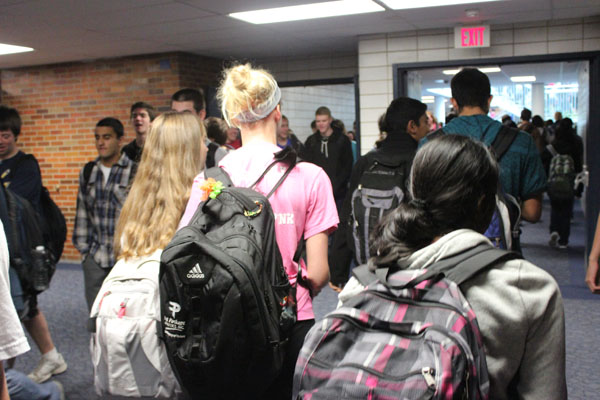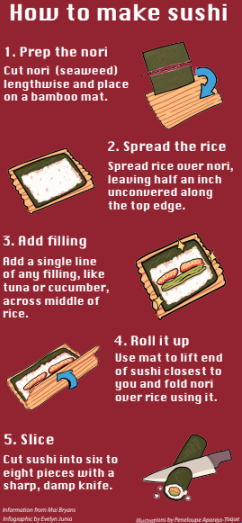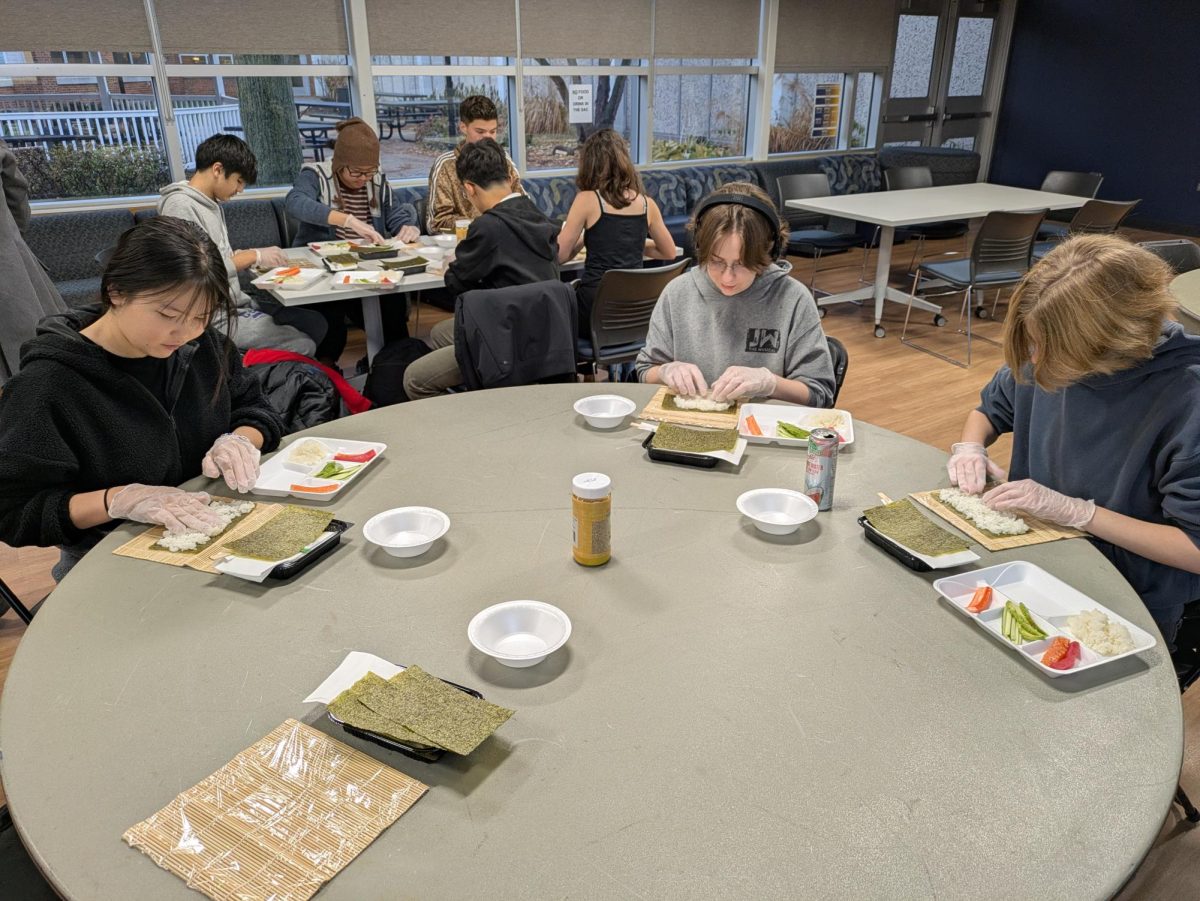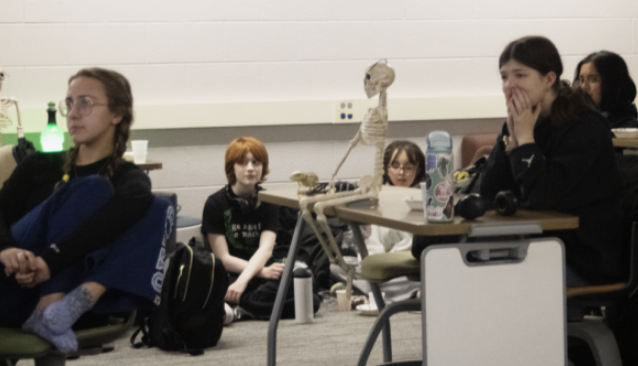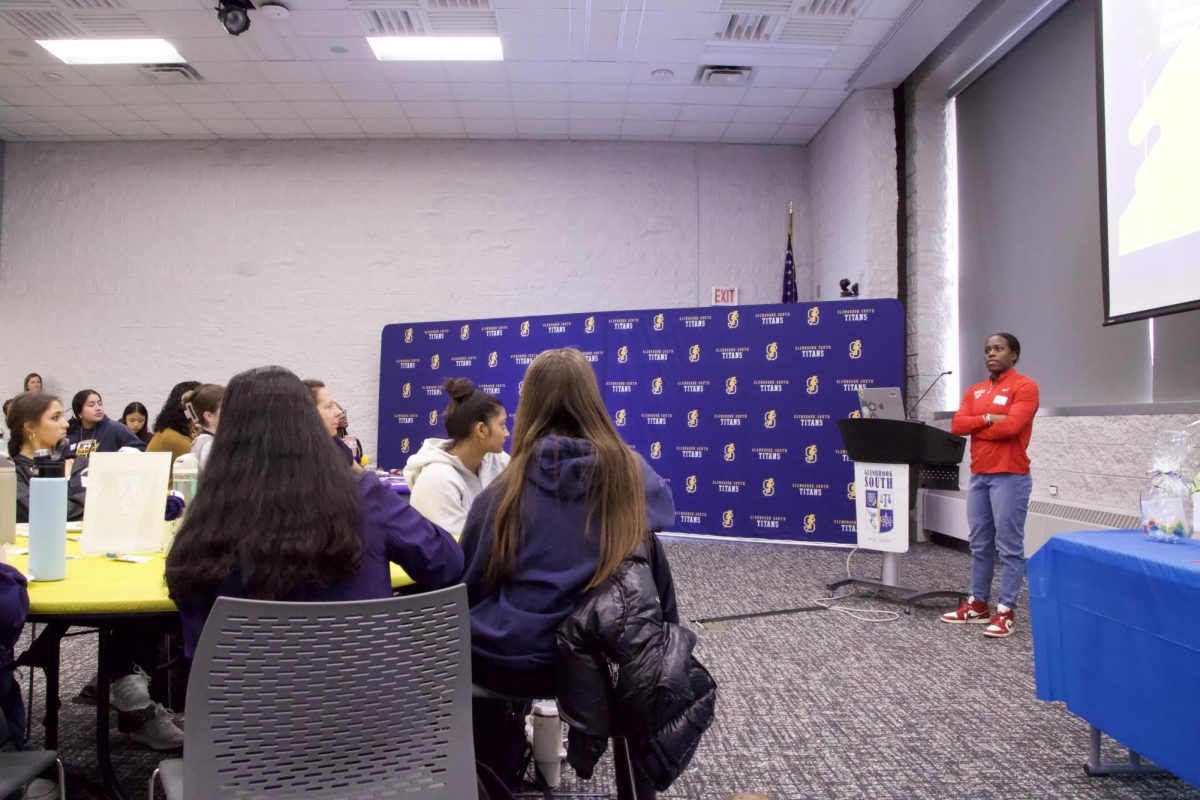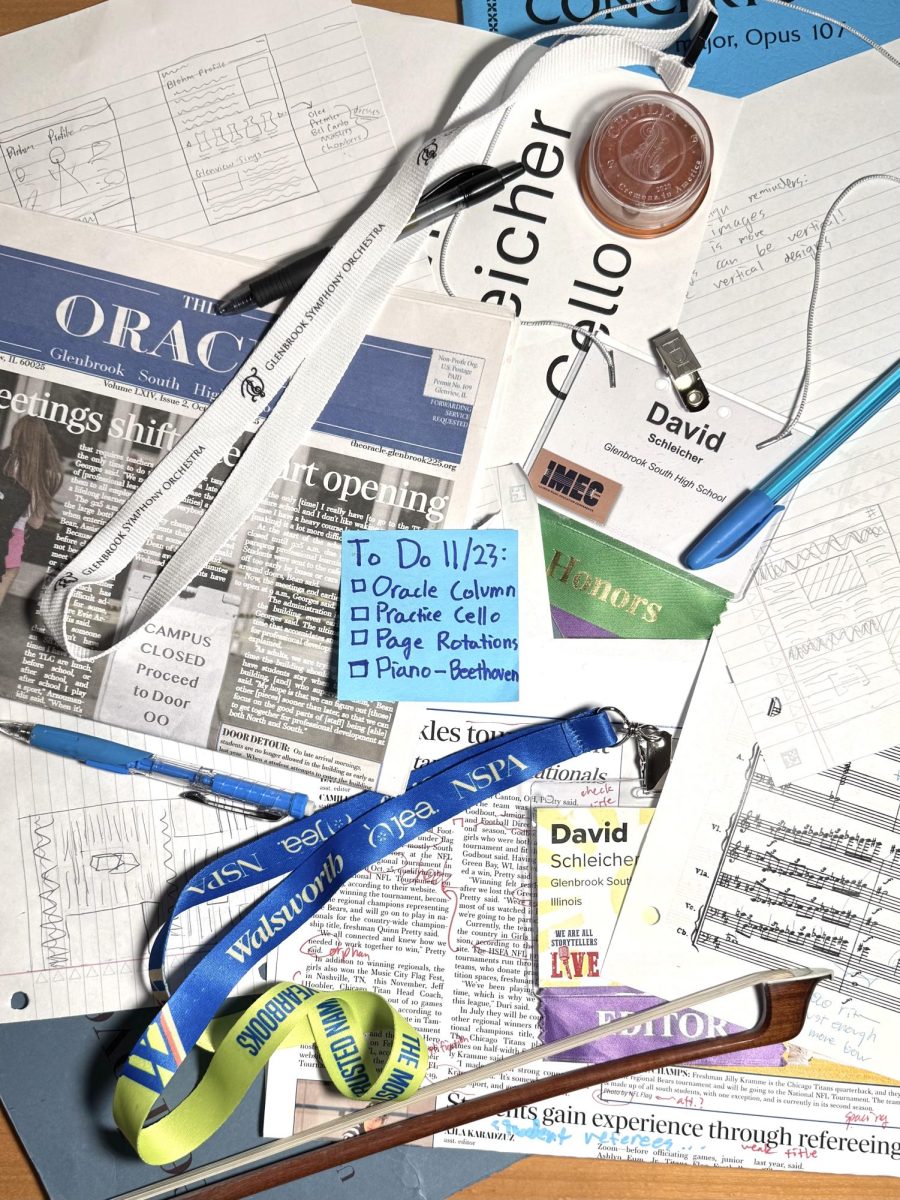The bell rings. Students rush to jam all of their folders and papers in their backpack as fast as possible so that they are able to make it to their next class in the five minutes given. Rushing down the crowded stairs full of students with their own agendas, people’s bags occasionally bump into each other, the weight of them knocking people off balance.
Junior Megan Pelos shared just how heavy her daily backpack load is.
“Most of the time I feel like I’m lugging around my entire locker,” Pelos said.
According to health teacher Michelle Scheinkopf, carrying around these packs is a difficult task.
“Sometimes I think you’re carrying close to 50 pounds,” Scheinkopf said. “And some of you only weigh about 100 pounds, so that’s not easy.”
Senior Jordan Scherer shared her mutual agreement on the difficulties a backpack could bring.
“It could give me back problems for my lifetime,” Scherer said.
Scoliosis, a disease in which the spine grows asymmetrically, or curved, could result from back problems due to heavy backpacks.
Freshman Caroline Marchiori explained the hardships of having this condition.
“At the end of the day if I carried around too many heavy books or too much stuff in my bag, [my back] will start to hurt or annoy me,” Marchiori said. “My backpack load can affect it, but over time it’ll make the scoliosis much worse, not just after one day of a heavy backpack.”
Junior Lauren Durning made adjustments to the type of backpack she used in order to improve her scoliosis.
“I used to use a one strapped backpack, so that was one of the reasons I developed Scoliosis, because of my curved spine,” During said. “This forced me to start using a normal backpack.”
Senior Elizabeth Uhl also had back problems which caused her to make adjustments to her backpack load.
“I had back spasms last year because of the weight of my backpack, so I had to reduce the size by a lot,” Uhl said. “But it wasn’t a bad change because I could now fit my backpack into my gym locker, which is a problem for many other girls.”
Another type of backpack that few people have switched to is the “wheeling” backpacks. Math teacher Bryan Cope gives his opinion on this type of bag.
“Students probably have [wheelie] backpacks because their regular backpacks are much too heavy,” Cope said. “Wheelie backpacks might look a little strange in the hallways of GBS, but I’m sure they greatly reduce the back pain caused by regular backpacks.”
According to Scheinkopf, repercussions of heavy backpacks will continue throughout a student’s lifetime.
“The college population is especially affected because they are the ones who are wearing the heaviest backpacks,” Scheinkopf said. “But the damage has already been done because after you get out of college you have a whole lifetime of back problems.”
Sophomore Annie Snow explained her opinion on book load in the future.
“I think in the future students will have the privilege of carrying around electronic books instead of the heavy load they have currently,” Snow said. “My little brother is 11 and he has an iPad, which his class loans their students for a year for the supplies needed for all their different classes. I think this is way more productive because we not only would have painless road trips between classes, but we could be much more time efficient.”
Scheinkopf also commented on the book load of students.
“I don’t know where it ever started that everyone had to have their books on them and carrying them around like this because it’s not good for your backs,” Scheinkopf said. “And if your back hurts, you’re in big trouble.”


